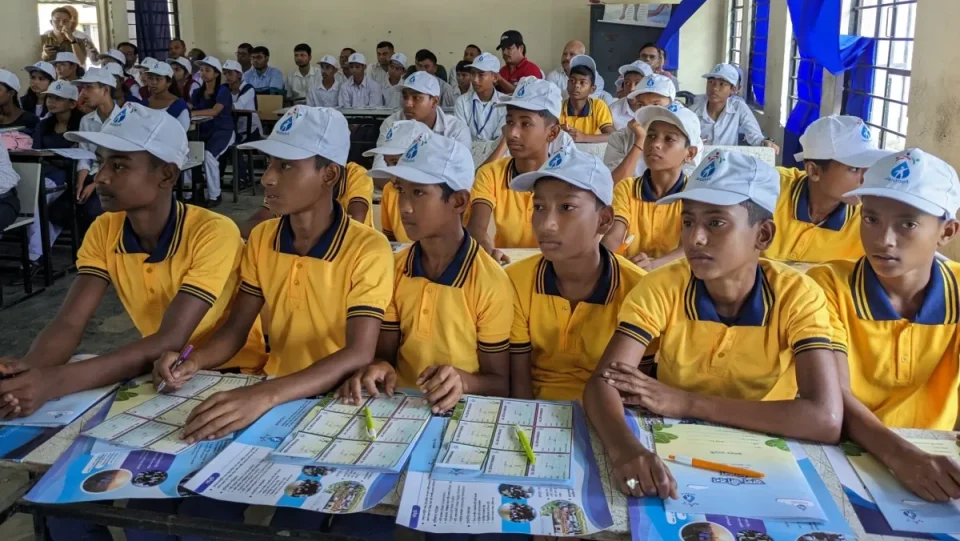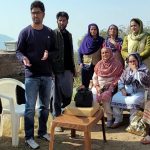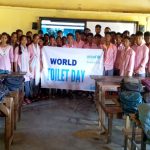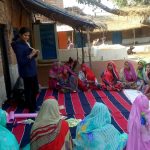KAILASH KARTHIK N., IAS Secretary (Phe Department) & Mission Director (JJM-Assam)
Arnav Baruah, ALRS, Asst. Mission Director, Jal Jeevan Mission
The Jaldoot Programme, an innovative initiative under Assam’s JJM, is revolutionizing communities by empowering students to champion safe water conservation, sanitation, and hygiene practices. Designed for students from classes 8 to 12, the programme encourages young people to assess and advocate for efficient functioning of Piped Water Supply Schemes in their localities.
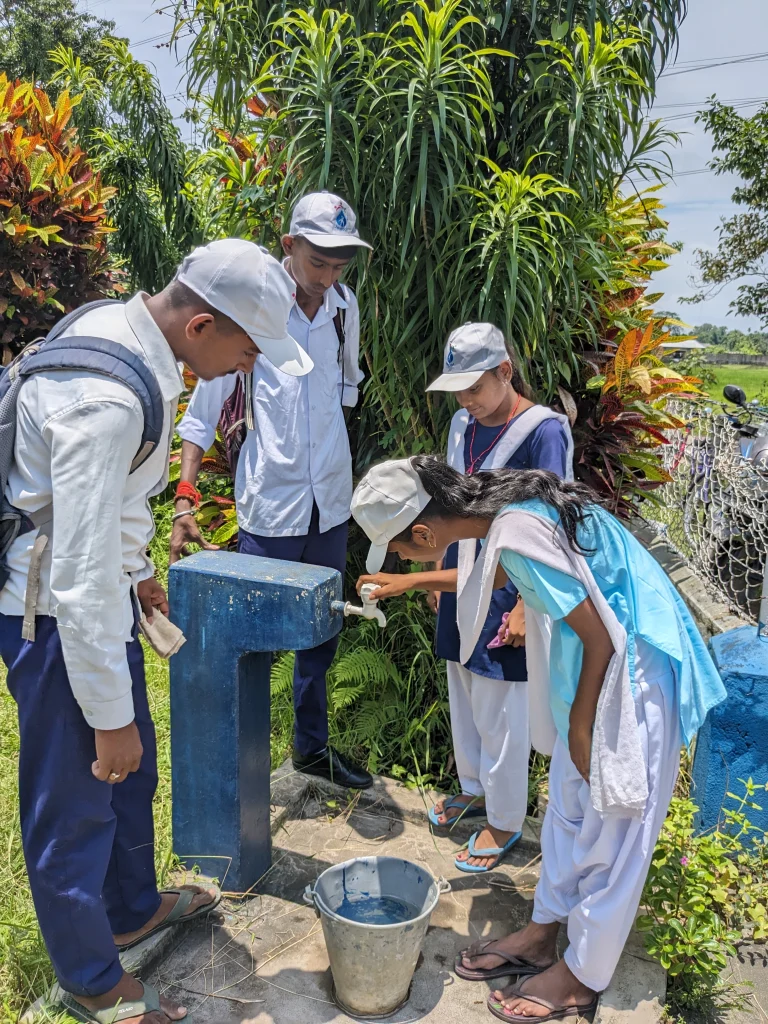
Community-Centric Approach and Student Engagement
The Jaldoot Programme takes a community-centered approach to water conservation by engaging students in a two-day interactive workshop called Jalshala. Students, typically aged 12 to 16, undergo mentorship from trained facilitators and coordinating teachers, covering essential topics such as sustainable water management, conservation, sanitation, and hygiene. The sessions emphasize hands-on learning, guiding students in mapping local water resources, assessing community water needs, and
identifying practical, sustainable solutions to local water issues. This peer based approach, grounded in real-world scenarios, inspires students to find creative solutions and positions them as advocates for water conservation
within their communities.
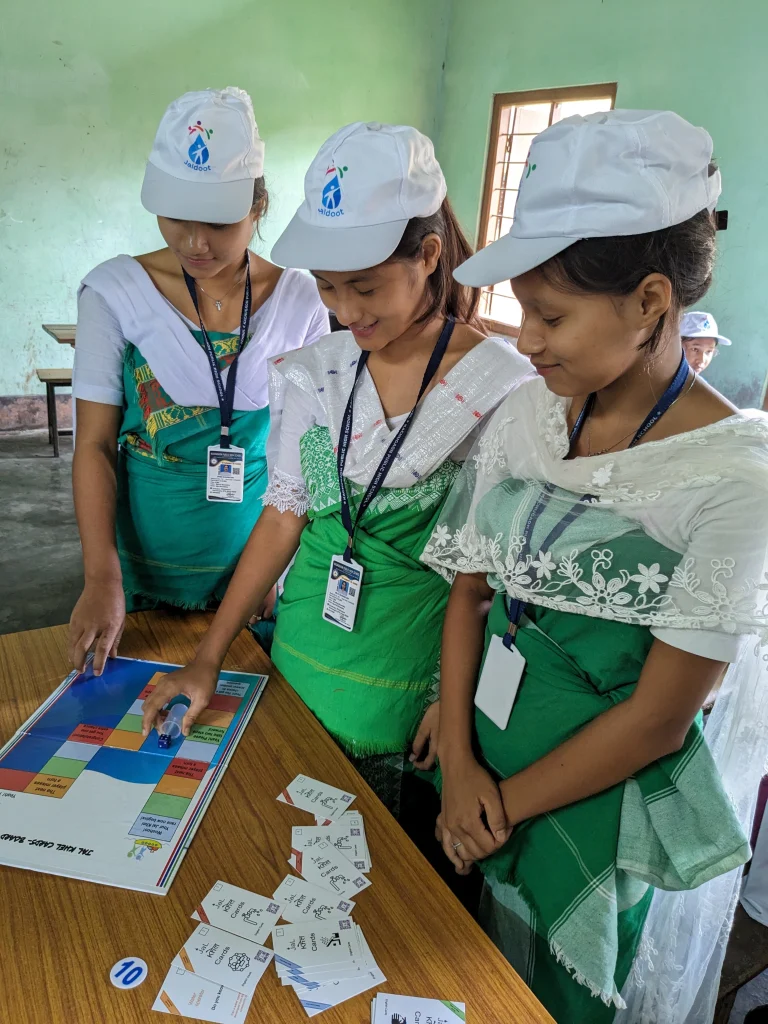
Innovation in Action: Water Aerators from Plastic Bottles
A highlight of the programme’s impact is the water aerator project, where Jaldoots have creatively repurposed plastic bottles to reduce water wastage. Using discarded plastic bottle caps, students crafted makeshift aerators that attach to taps, controlling water flow to minimize leaks and reduce usage. This resourceful, low-cost innovation not only conserves water but
also emphasizes recycling and reuse, demonstrating how small, accessible changes can make a meaningful environmental impact. The success of the water aerator project has resonated across districts, with many schools and households replicating the design, amplifying its positive effects.
Building on Technology and Sustainable Engagement
To sustain momentum beyond training sessions, the Jaldoot Programme leverages technology to keep students engaged. A specially designed WhatsApp chatbot serves as a primary tool, enabling students to stay connected with conservation tasks and updates. Coordinating teachers facilitate student interaction with the chatbot, which provides weekly challenges, conservation tips, and reminders, turning water-saving practices into regular habits.
By using WhatsApp, a widely accessible platform, the program ensures that students remain involved in water conservation efforts long after their initial training. Beyond digital engagement, the program organizes JalAdda, an alumni meet where the top 40 Jaldoots from each district gather to share insights and brainstorm new ideas.
These gatherings encourage peer learning and strengthen a network of student advocates for sustainable water use. JalAdda participants present their projects and discuss challenges, fostering an environment of continuous learning and inspiring innovation in water conservation practices.
Success in Majuli : A Model District for the Jaldoot Programme
The island district of Majuli, known for its unique geographical challenges, stands out as a success story of the Jaldoot Programme. In Majuli, Assam, the world’s largest river island, the local community faced a significant challenge. They were unaware of the quality of their drinking water despite an apparent abundance.
Jaldoots from Ratanpur High School stepped forward to tackle this issue. Motivated by the increasing threat of waterborne diseases, they launched dynamic awareness campaigns, utilizing street plays and rallies within their
school premises to educate their peers and the wider community. Their efforts quickly drew the attention of government bodies, resulting in a collaborative campaign to enhance water quality awareness across Majuli.
Initiatives like these from the Jaldoots not only received media attention but also led to the recognition of the Jaldoot Programme as a National Policy by the Government of India. The success in Majuli illustrates how youth-led conservation efforts can influence systemic change, even in challenging terrains, making it a model district for the Jaldoot Programme. Practical Tips and Actions for Sustainable Water Conservation To promote sustainable water use in day-to-day life, the Jaldoot Programme provides students with practical conservation
tips. These include simple actions like fixing leaks, using buckets instead of running taps, and reusing greywater for gardening. Schools are encouraged to incorporate these practices into daily routines, helping students form
water-saving habits that extend to their families and communities.


